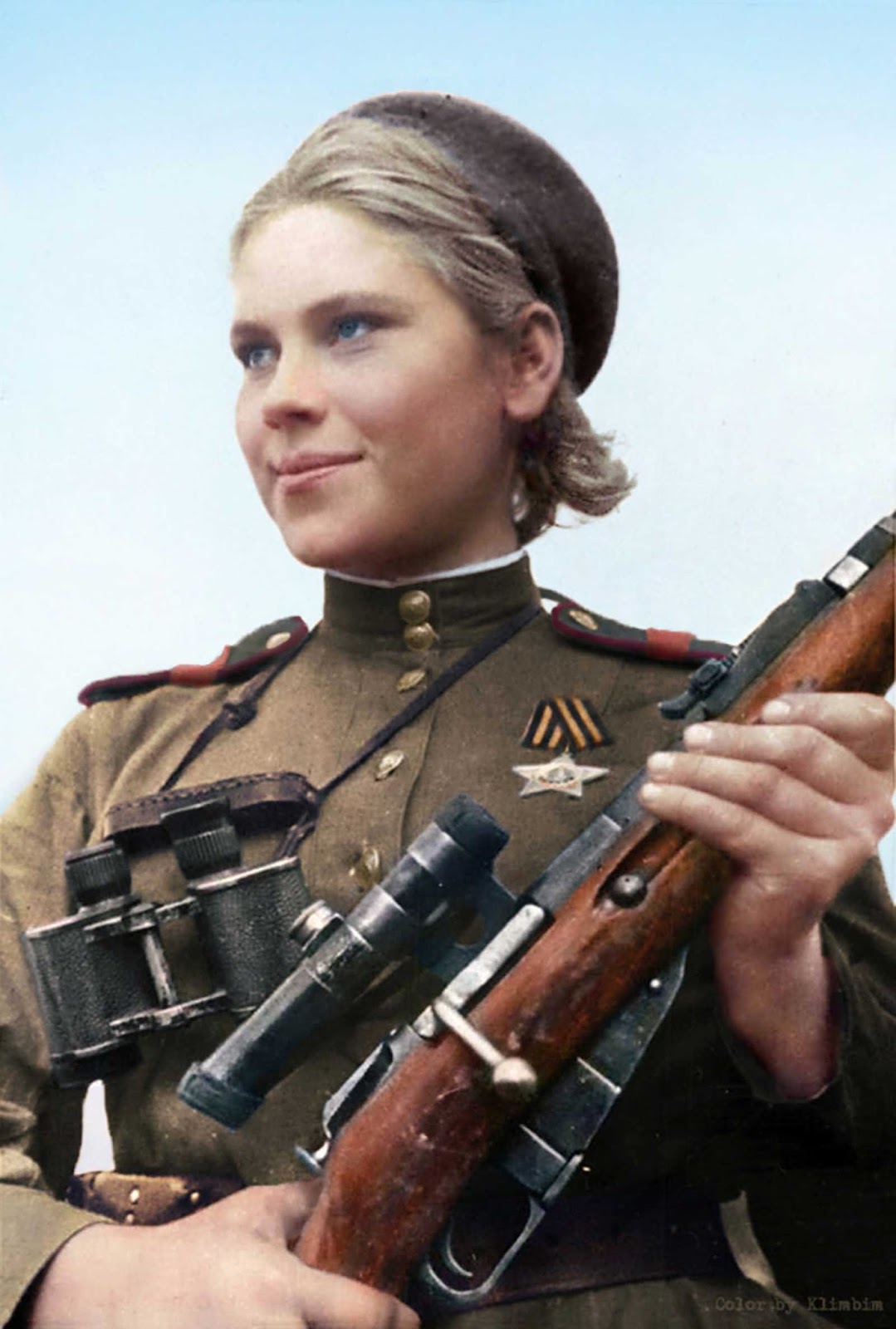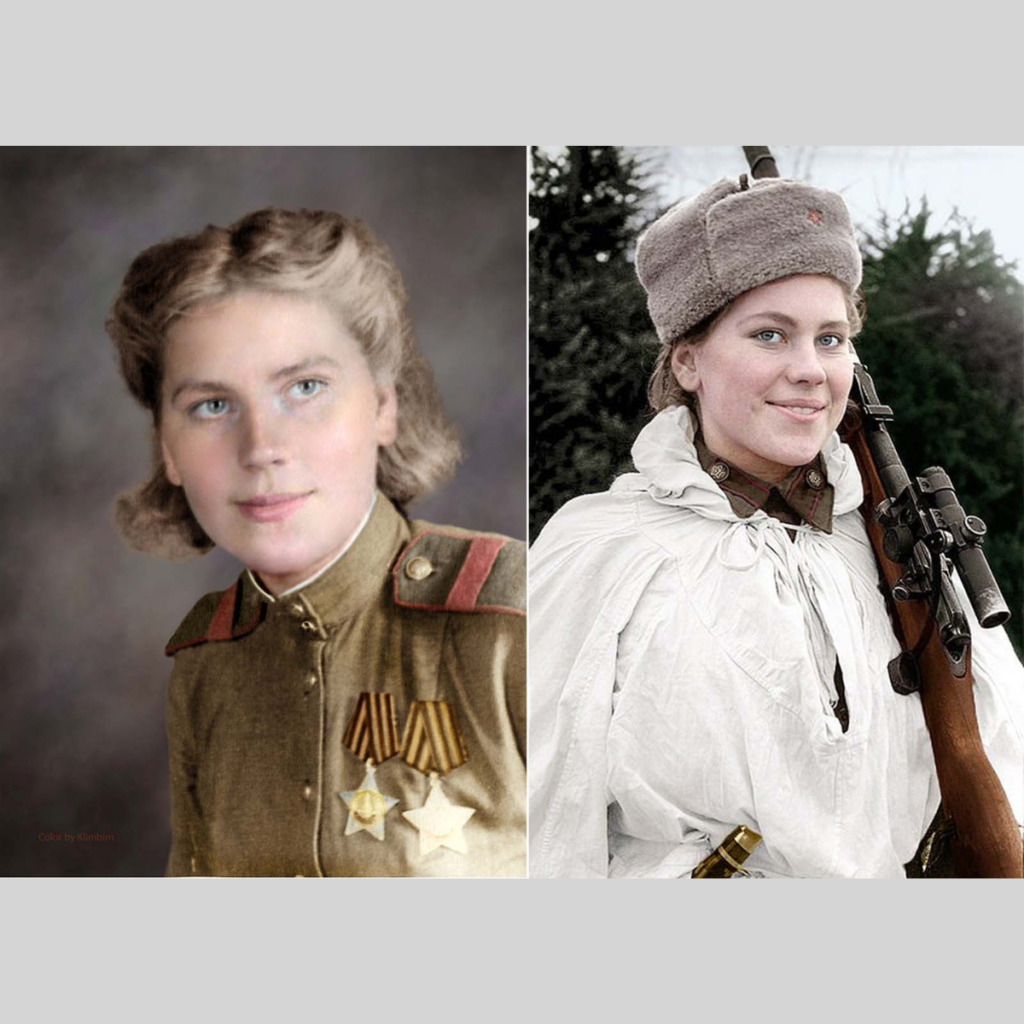
Shanina in 1944, holding an 1891/30 Mosin–Nagant with the 3.5x PU scope. (Colorized photo).
Roza Shanina was a Soviet sniper during World War II who was credited with fifty-nine confirmed kills, including twelve soldiers during the Battle of Vilnius.
Shanina volunteered for the military after the death of her brother in 1941 and chose to be a marksman on the front line. Praised for her shooting accuracy, Shanina was capable of precisely hitting enemy personnel and making doublets (two target hits by two rounds fired in quick succession).
In 1944, a Canadian newspaper described Shanina as “the unseen terror of East Prussia”. She became the first Soviet female sniper to be awarded the Order of Glory and was the first servicewoman of the 3rd Belorussian Front to receive it.
According to the report of Major Degtyarev (the commander of the 1138th Rifle Regiment) for the corresponding commendation list, between 6 and 11 April Shanina killed 13 enemy soldiers while subjected to artillery and machine gunfire.
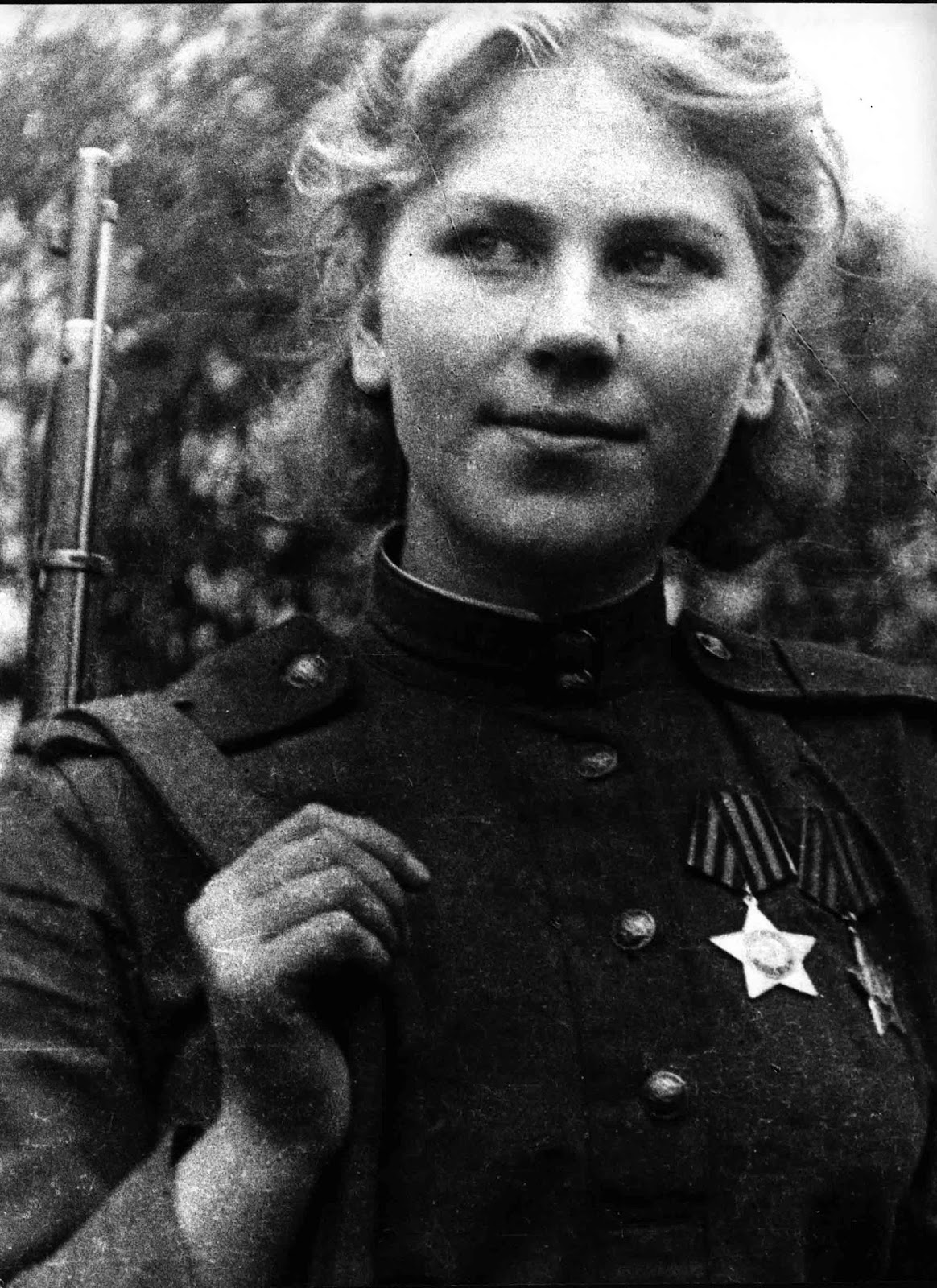
Roza Shanina was born on 3 April 1924 in the Russian village of Yedma (Arkhangelsk Oblast) to Anna Alexeyevna Shanina, a kolkhoz milkmaid, and Georgiy Mikhailovich Shanin, a logger who had been disabled by a wound received during World War I.
By May 1944, her sniper tally increased to 17 confirmed enemy kills, and Shanina was praised as a precise and brave soldier. The same year, on 9 June, Shanina’s portrait was featured on the front page of the Soviet newspaper Unichtozhim Vraga.
When Operation Bagration commenced in the Vitebsk region on 22 June 1944, it was decided that female snipers would be withdrawn. They voluntarily continued to support the advancing infantry anyway, and despite the Soviet policy of sparing snipers, Shanina asked to be sent to the front line.
Although her request was refused, she went anyway. Shanina was later sanctioned for going to the front line without permission but did not face a court-martial. She wanted to be attached to a battalion or a reconnaissance company, turning to the commander of the 5th Army, Nikolai Krylov. Shanina also wrote twice to Joseph Stalin with the same request.

In December 1941, a death notification was received for her 19-year-old brother Mikhail, who had died during the Siege of Leningrad. In response, Shanina went to the military commissariat to ask for permission to serve.
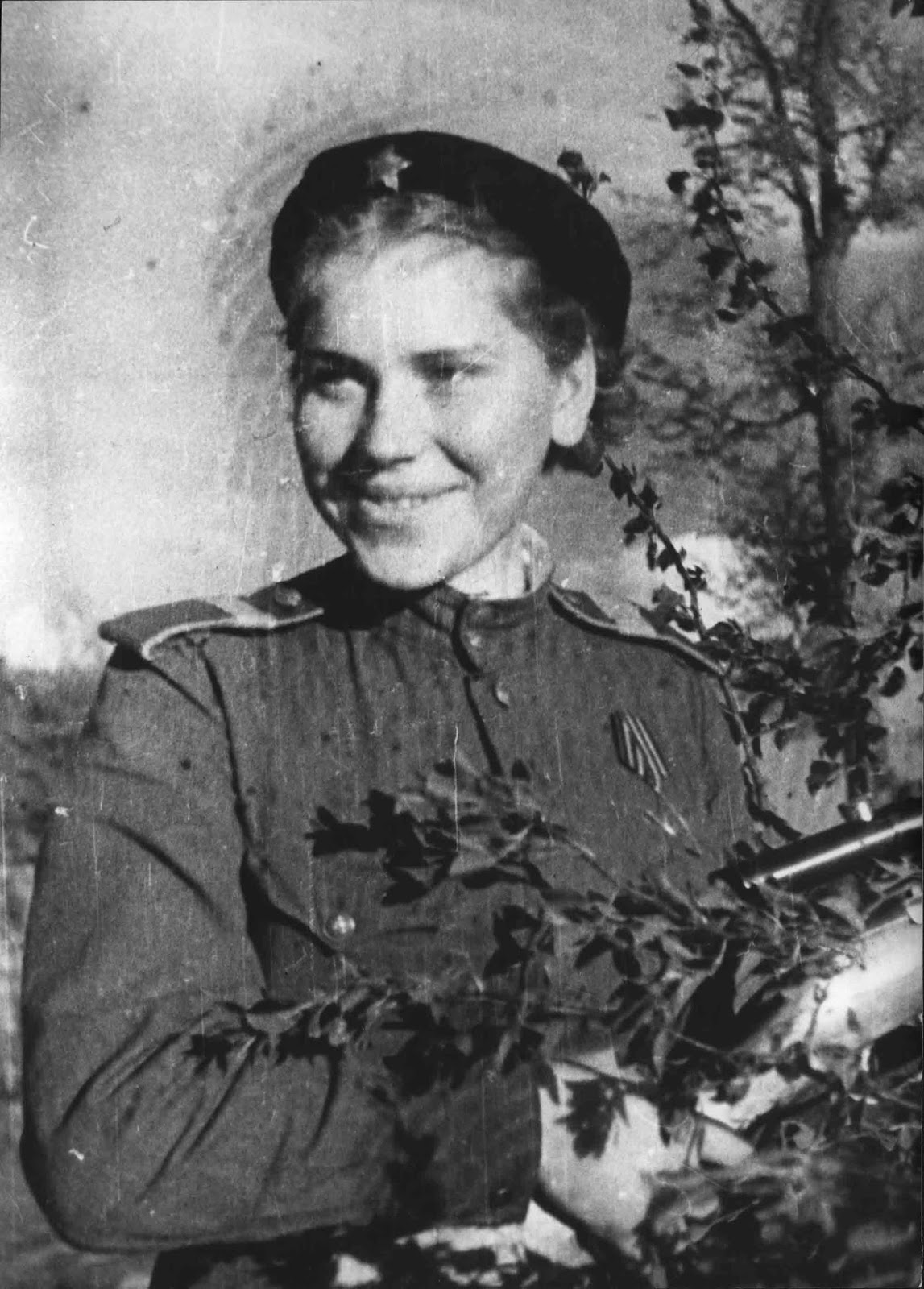
Photography Location: Village Merzlyakov, Vitebsk region, Belarus, USSR. 1944.
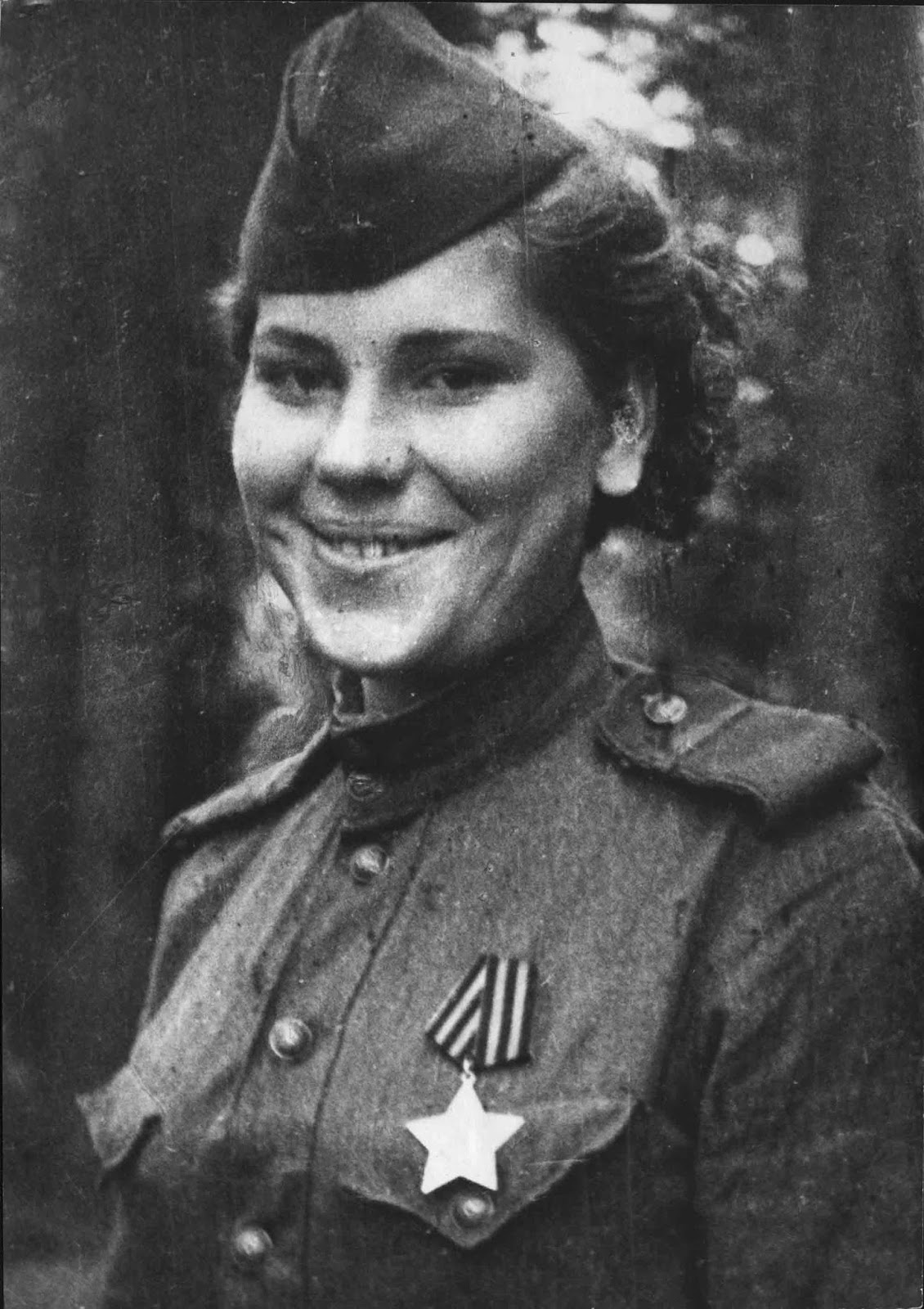
After Shanina’s several applications, the military commissariat finally allowed her to enroll in the Central Female Sniper Academy, where she met Aleksandra “Sasha” Yekimova and Kaleriya “Kalya” Petrova, who became her closest friends, with Shanina calling them “the vagrant three”.
In the face of the East Prussian Offensive, the Germans tried to strengthen the localities they controlled against great odds. In a diary entry dated 16 January 1945, Shanina wrote that despite her wish to be in a safer place, some unknown force was drawing her to the front line.
In the same entry, she wrote that she had no fear and that she had even agreed to go “to a melee combat”. The next day, Shanina wrote in a letter that she might be on the verge of being killed because her battalion had lost 72 out of 78 people. Her last diary entry reports that German fire had become so intense that the Soviet troops, including herself, had sheltered inside self-propelled guns.
On 27 January Shanina was severely injured while shielding a wounded artillery officer. She was found by two soldiers disemboweled, with her chest torn open by a shell fragment. Despite attempts to save her, Shanina died the following day near the Richau estate (later a Soviet settlement of Telmanovka.
Shanina was buried under a spreading pear tree on the shore of the Alle River (now called the Lava) and was later reinterred in the settlement of Znamensk, Kaliningrad Oblast.
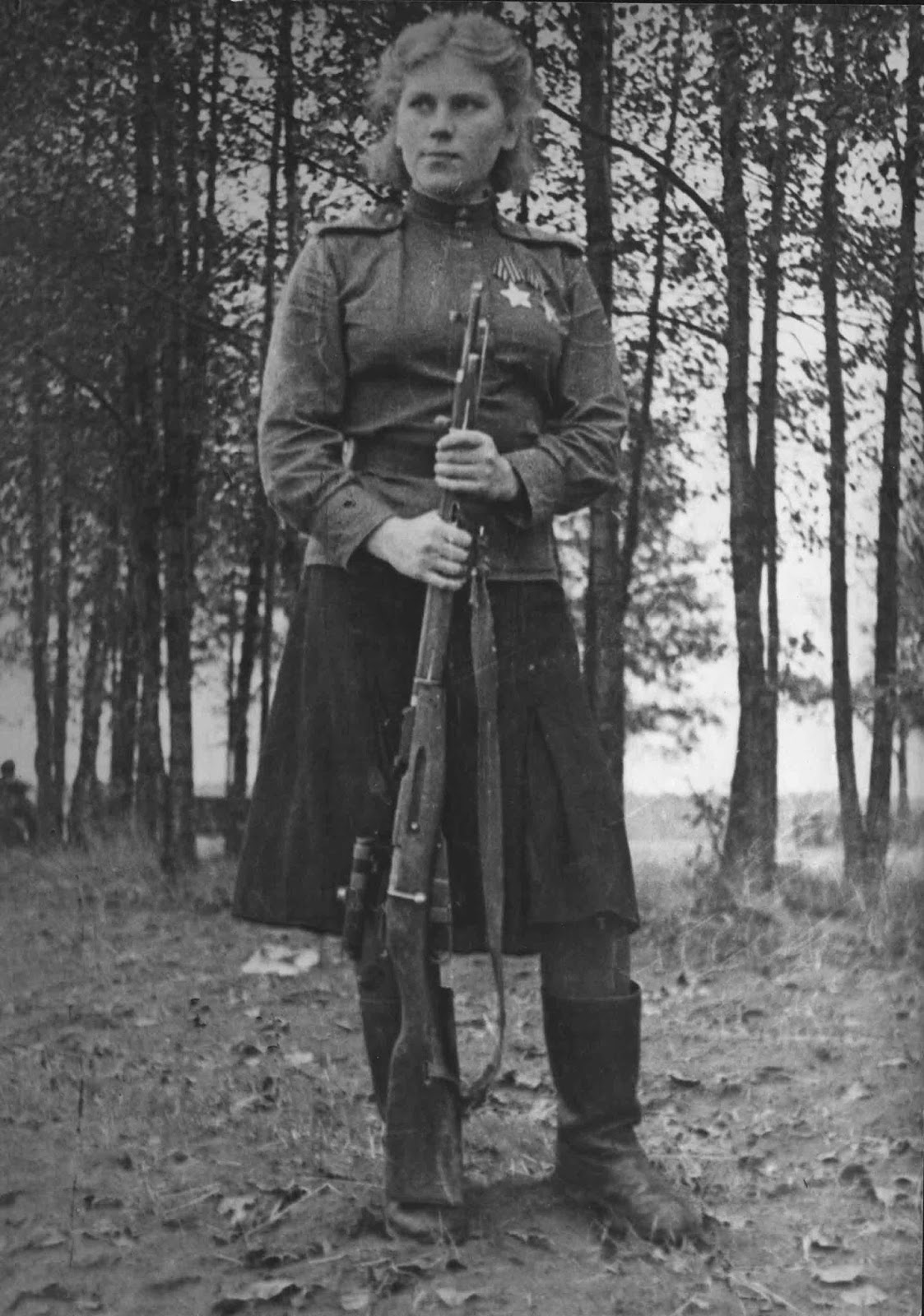
Shanina in November 1944, wearing a male-issue wool field shirt and woolen skirt. The shirt was khaki, while the skirt was dark blue.
In 1964–65 a renewed interest in Shanina arose in the Soviet press, largely due to the publication of her diary. The newspaper Severny Komsomolets asked Shanina’s contemporaries to write what they knew about her.
Streets in Arkhangelsk, Shangaly, and Stroyevskoye were named after her, and the village of Yedma has a museum dedicated to Shanina. The local school where she studied in 1931–35 has a commemorative plate.
Shanina’s personal life was thwarted by war. On 10 October 1944, she wrote in her diary, “I can’t accept that Misha Panarin doesn’t live anymore. What a good guy! [He] has been killed … He loved me, I know, and I him … My heart is heavy, I’m twenty, but I have no close [male] friend”. In November 1944, Shanina wrote that she “is flogging into her head that [she] loves” a man named Nikolai, although he “doesn’t shine in upbringing and education”.
In the same entry, she wrote that she did not think about marriage because “it’s not the time now”. She later wrote that she “had it out” with Nikolai and “wrote him a note in the sense of but I’m given to the one and will love no other one“.
Ultimately in her last diary record, filled with somber tones, Shanina wrote that she “cannot find a solace” now and is “of no use to anyone”.
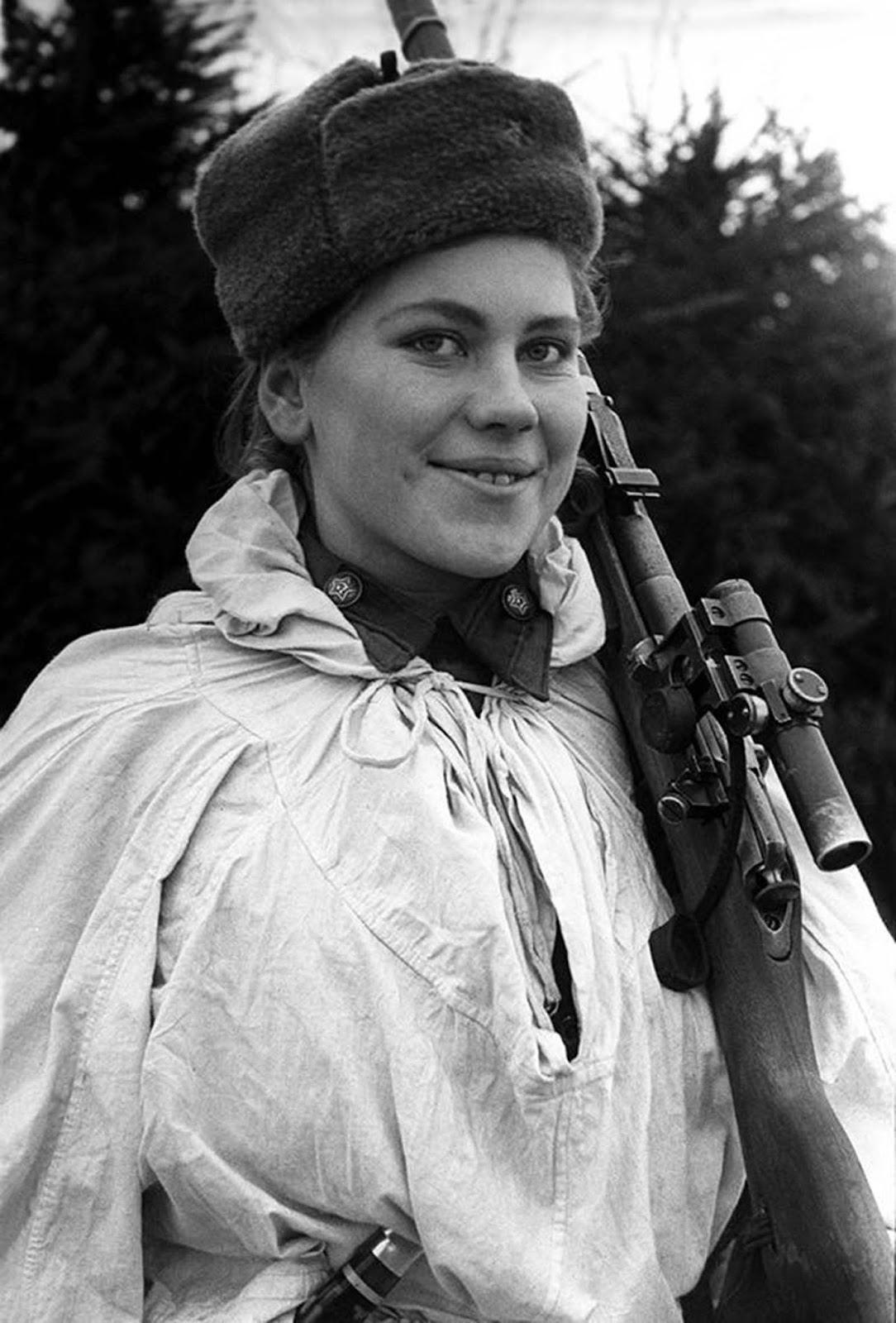
For her actions in the battle for the village of Kozyi Gory (Smolensk Oblast), Shanina was awarded her first military distinction, the Order of Glory 3rd Class on 17 April 1944.

Roza Shanina (left), Evdokia Fedorovna Krasnoborova, and war correspondent of the newspaper “Destroy the Enemy” Fridlyansky .

Roza Shanina and Alexndra Maksimovna Ekimova.

Roza Shanina, Lydia G. Vdovin and Alexndra Maksimovna Ekimova

Roza Shanina and Evdokia Fedorovna Krasnoborova.

Roza Shanina, Alexndra Maksimovna Ekimova and Lydia G. Vdovin.
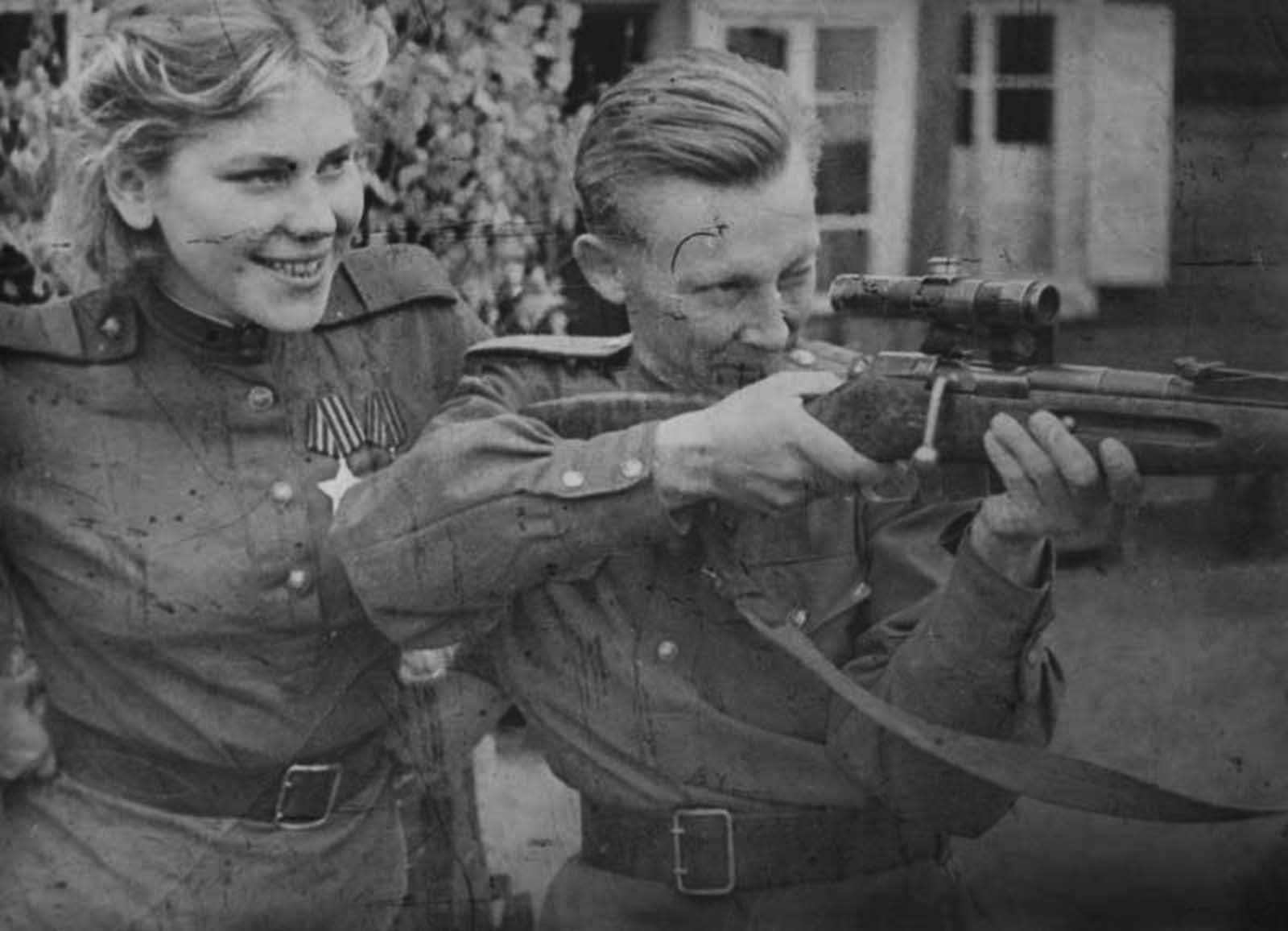
Sniper Roza Shanina and her leader A. Balayev.
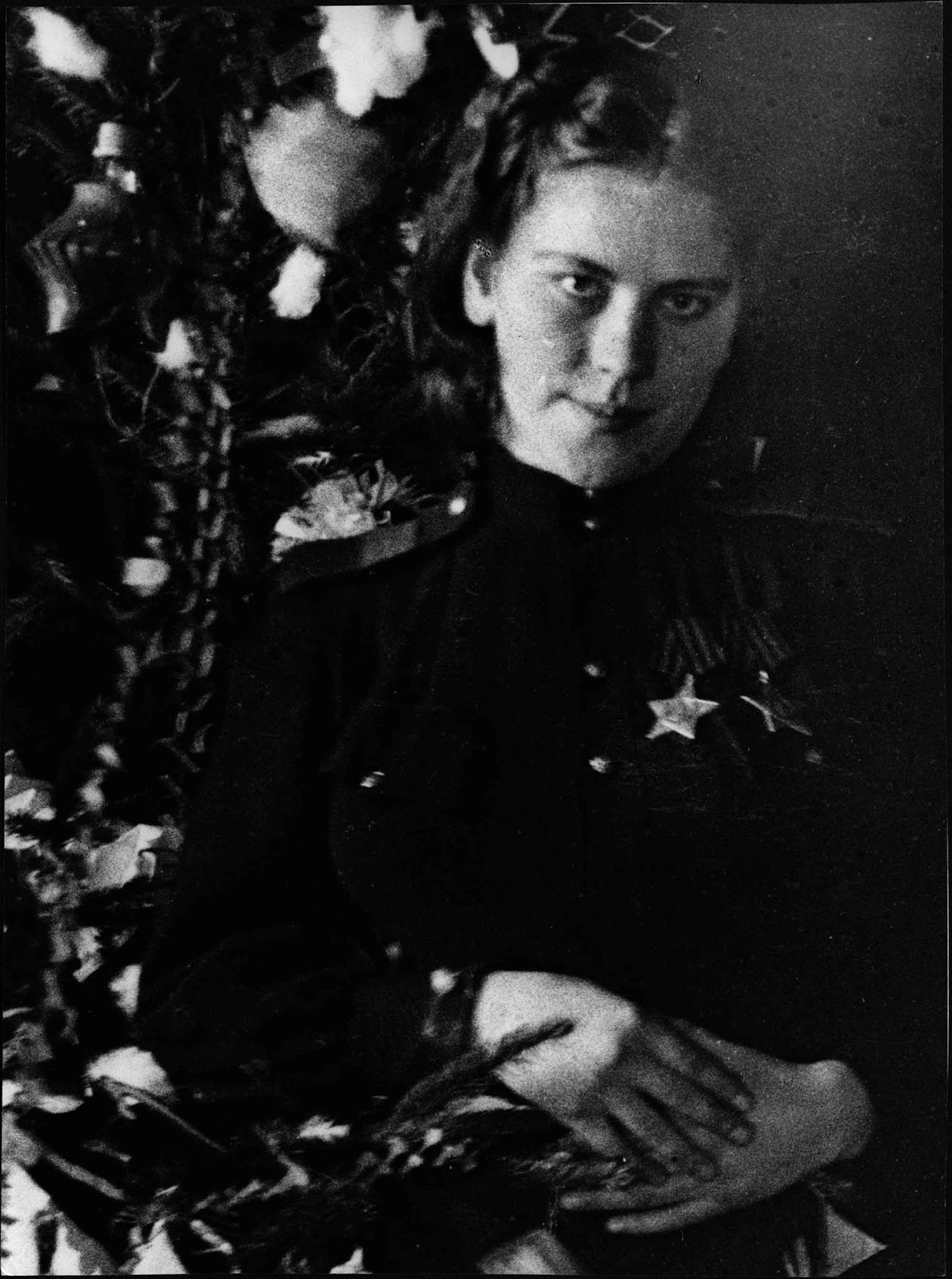
This is the last known picture of Rosa Shanina. The photo was taken on January 1, 1945. 28 days later she was killed in action.
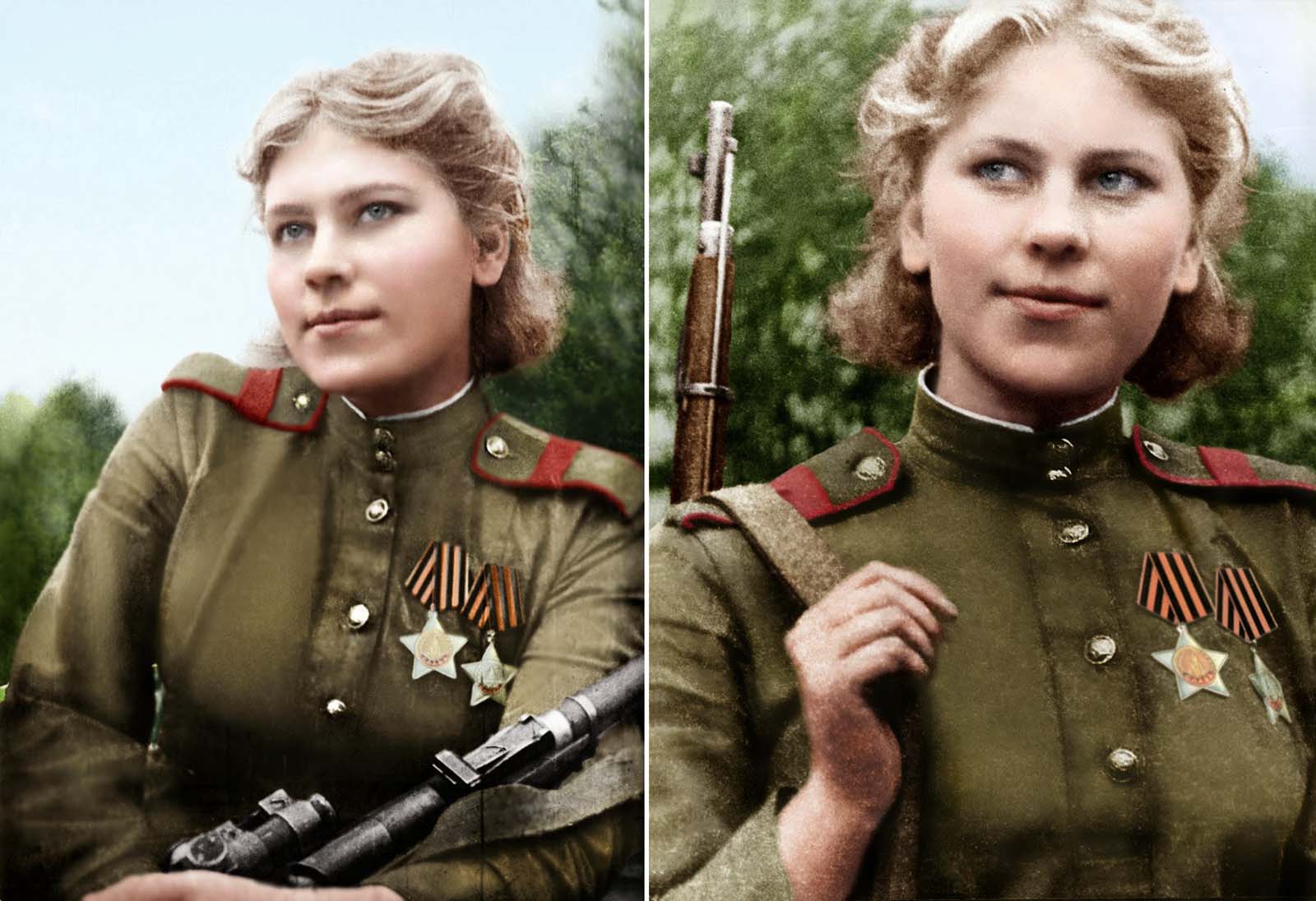
Colorized photos of Roza Shanina (credit: Klimbim).

After Shanina’s death, the diary, consisting of three thick notebooks, was kept by the war correspondent Pyotr Molchanov for twenty years in Kyiv. An abridged version was published in the magazine Yunost in 1965.
